Learn more
This is not a comprehensive list of resources, and it is provided for reference only.

Single-gene diseases have been a primary focus of gene therapy research and development. These developments fulfill an urgent need. Gene therapy offers the possibility of going beyond managing symptoms to address the underlying causes of diseases.1
The US Food and Drug Administration (FDA) has approved several gene therapies. Other candidates are still in clinical development or are under review for approval.
Learn more about how Astellas Gene Therapies is developing investigational gene therapy treatments for Pompe disease, X-linked myotubular myopathy (XLMTM) and myotonic dystrophy type 1 (MDT1).
The table below lists a number of diseases where gene therapy research is ongoing. This is not an exhaustive list for gene therapy research, as this area continues to evolve.
Click on the down-caret  to see specific gene therapy treatments that have been approved by the
US FDA. Except where FDA approval is noted, treatments being researched are still in the investigational stage; their safety and efficacy have not been established,
and there is no guarantee that they will be approved.
to see specific gene therapy treatments that have been approved by the
US FDA. Except where FDA approval is noted, treatments being researched are still in the investigational stage; their safety and efficacy have not been established,
and there is no guarantee that they will be approved.

Betibeglogene autotemcel, LV, FDA approved 2022
Exagamglogene autotemcel, CRISPR/Cas9, FDA approved 2024
Fanconi Anemia
Hemophilia A and B, other clotting disorders
Severe anemias
Exagamglogene autotemcel, CRISPR/Cas9, FDA approved 2024
Lovotibeglogene autotemcel, LV, FDA approved 2024

Nadofaragene firadenovec-vncg, AV, FDA approved 2022
Breast Cancer
Esophageal Carcinoma
Glioblastoma
Some leukemias
Brexucabtagene autoleucel, CAR T cell therapy, FDA approved 2020
Lisocabtagene maraleucel, CAR T cell therapy, FDA approved 2024
Tisagenlecleucel, CAR T cell therapy, FDA approved 2017
Lung Cancer
Some lymphomas
Axicabtagene ciloleucel, CAR T cell therapy, FDA approved 2017
Brexucabtagene autoleucel, CAR T cell therapy, FDA approved 2020
Lisocabtagene maraleucel, CAR T cell therapy, FDA approved 2022
Tisagenlecleucel, CAR T cell therapy, FDA approved 2017
Afamitresgene autoleucel, LV, FDA approved 2024
Ciltacabtagene autoleucel, CAR T cell therapy, FDA approved 2022
Idecabtagene vicleucel, CAR T cell therapy, FDA approved 2021
Ovarian Cancer
Prostate Cancer
Other solid and hematological malignancies
Angina
Ischemia and other vascular diseases
Voretigene neparvovec-rzyl, AAV, FDA approved 2017
Leber Hereditary Optic Neuropathy
Macular Degeneration
Retinitis Pigmentosa

Beremagene geperpavec, topical GTx, FDA approved 2023
Gaucher Disease
Hereditary Angioedema
Atidarsagene autotemcel, LV, FDA approved 2024
Mucopolysaccharidosis
Pompe Disease
Cystic Fibrosis
Osteoarthritis
Osteoporosis
Alzheimer's Disease
Elivaldogene autotemcel, LV, FDA approved 2022
Frontotemporal Dementia
Huntington's Disease
Parkinson's Disease
Diabetic Neuropathy
Migraine
Who is eligible to receive gene therapy depends on many different factors. Gene therapies approved by the FDA have a statement indicating when and how they can be used. Some of the variables affecting who can use a particular drug include:
A genetic test may identify a genetic disease by detecting gene variants. A genetic test can help confirm a genetic disease or uncover a person’s chance of developing or passing on a genetic disease.


This is not a comprehensive list of resources, and it is provided for reference only.